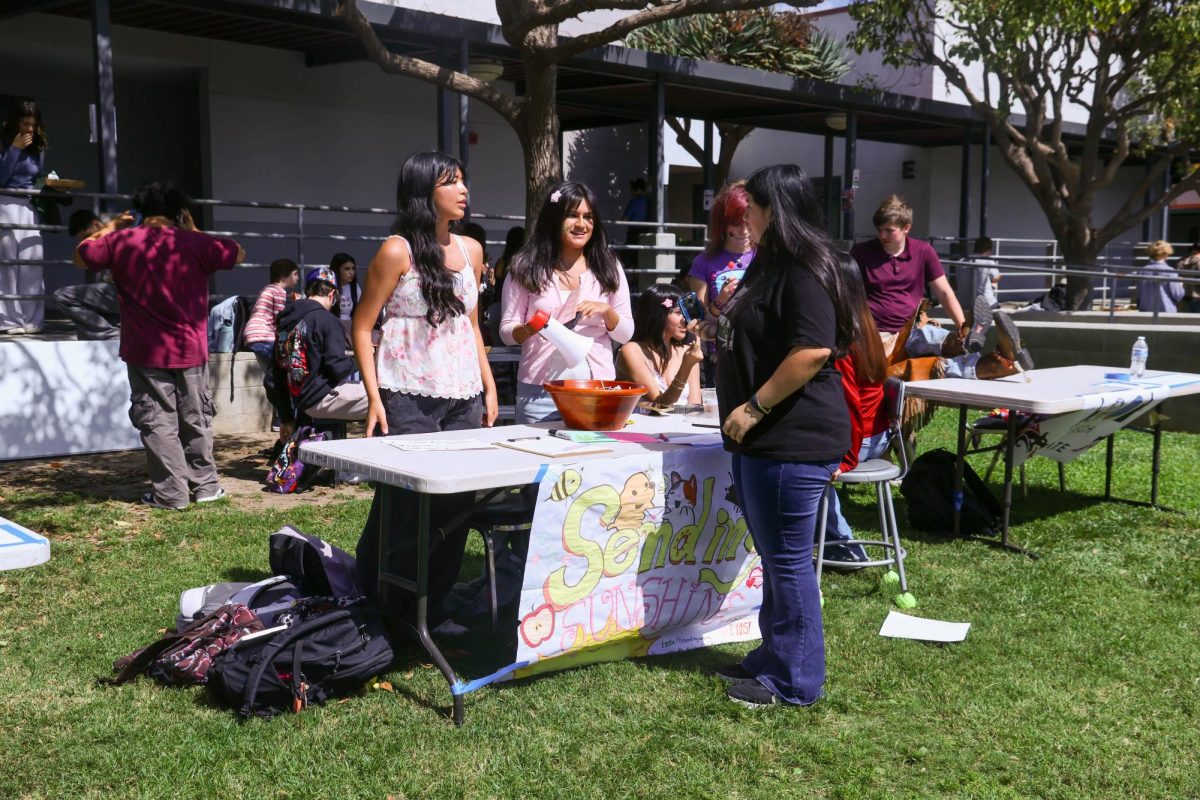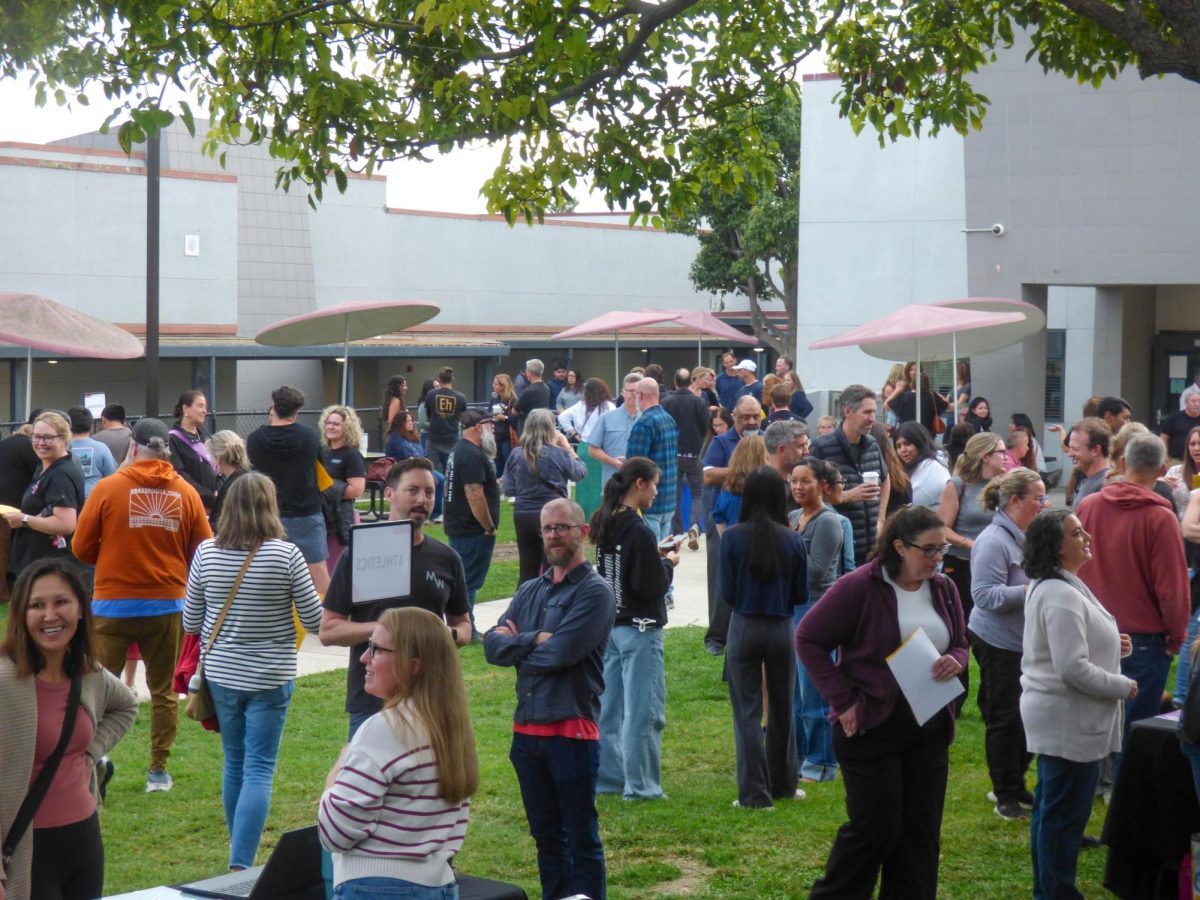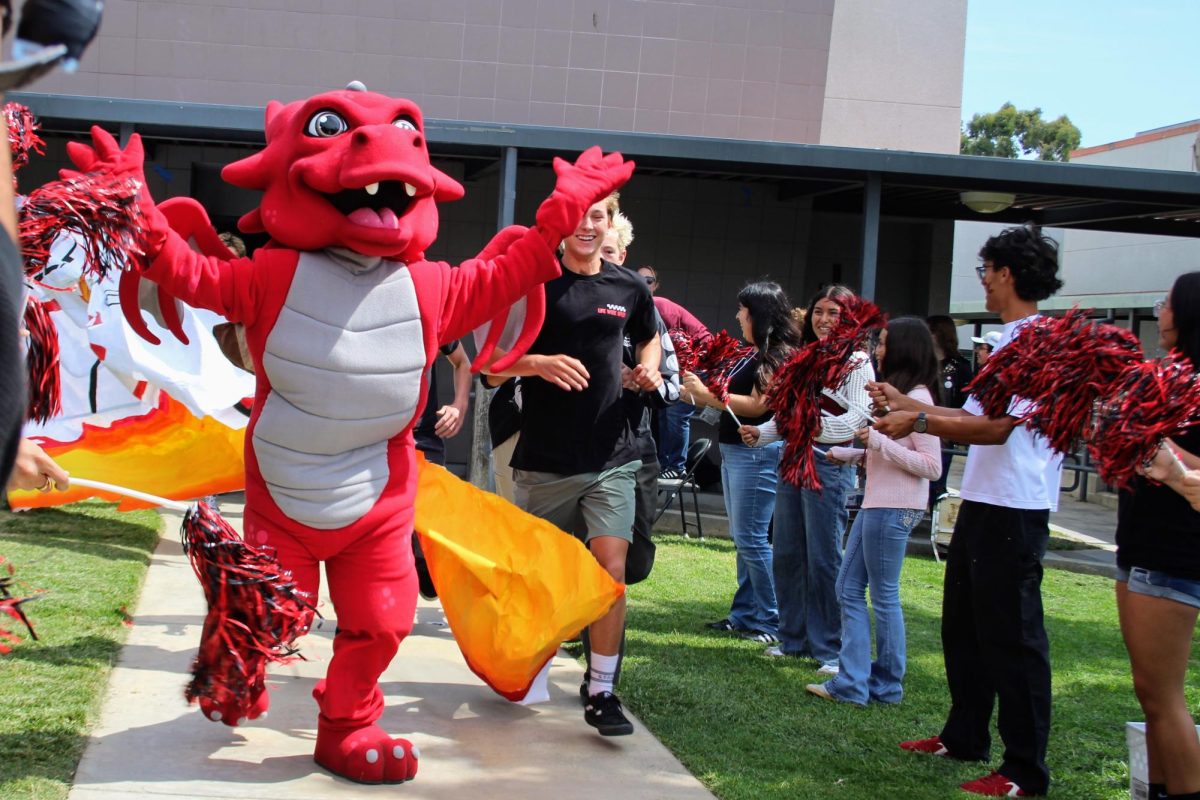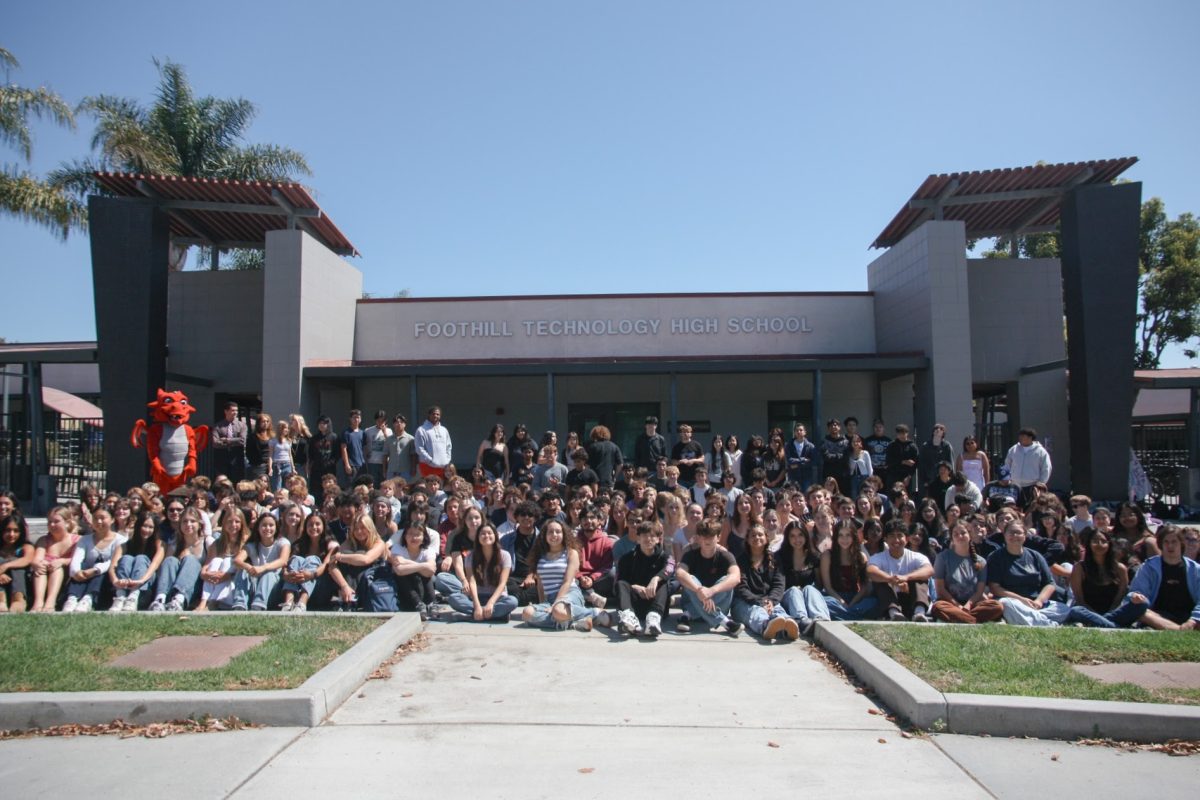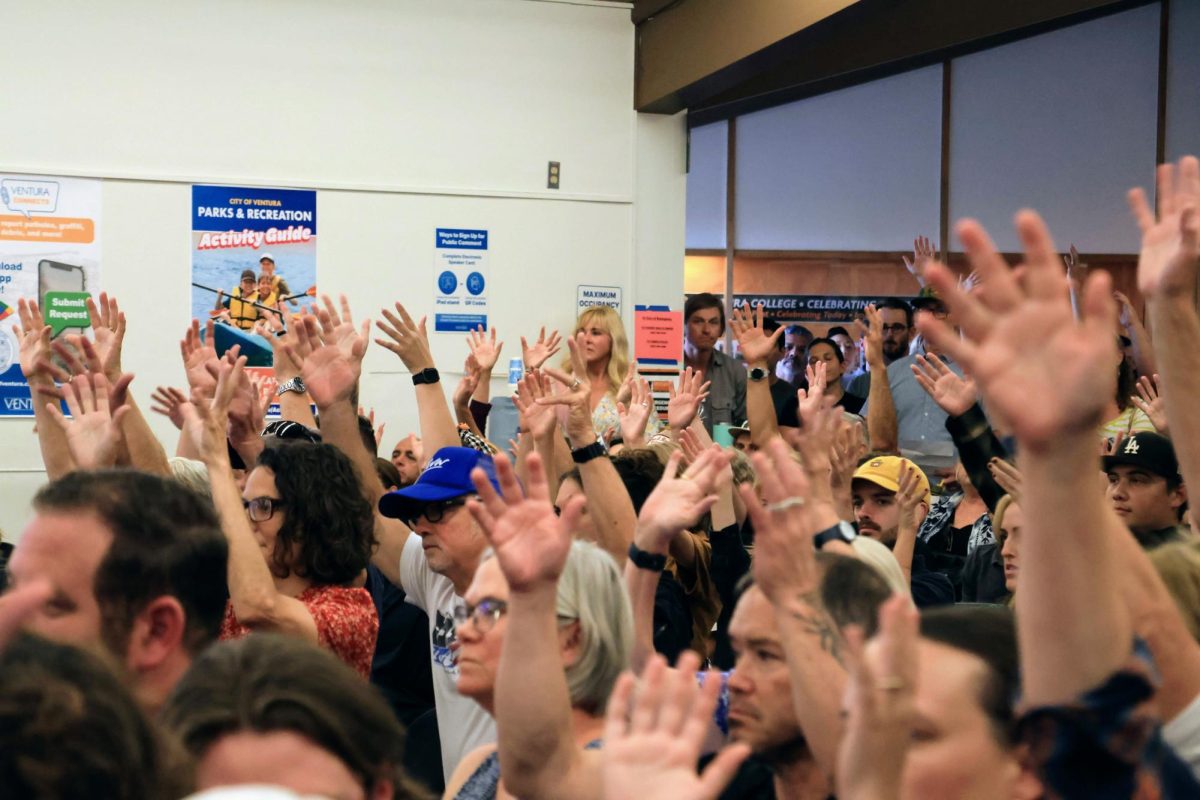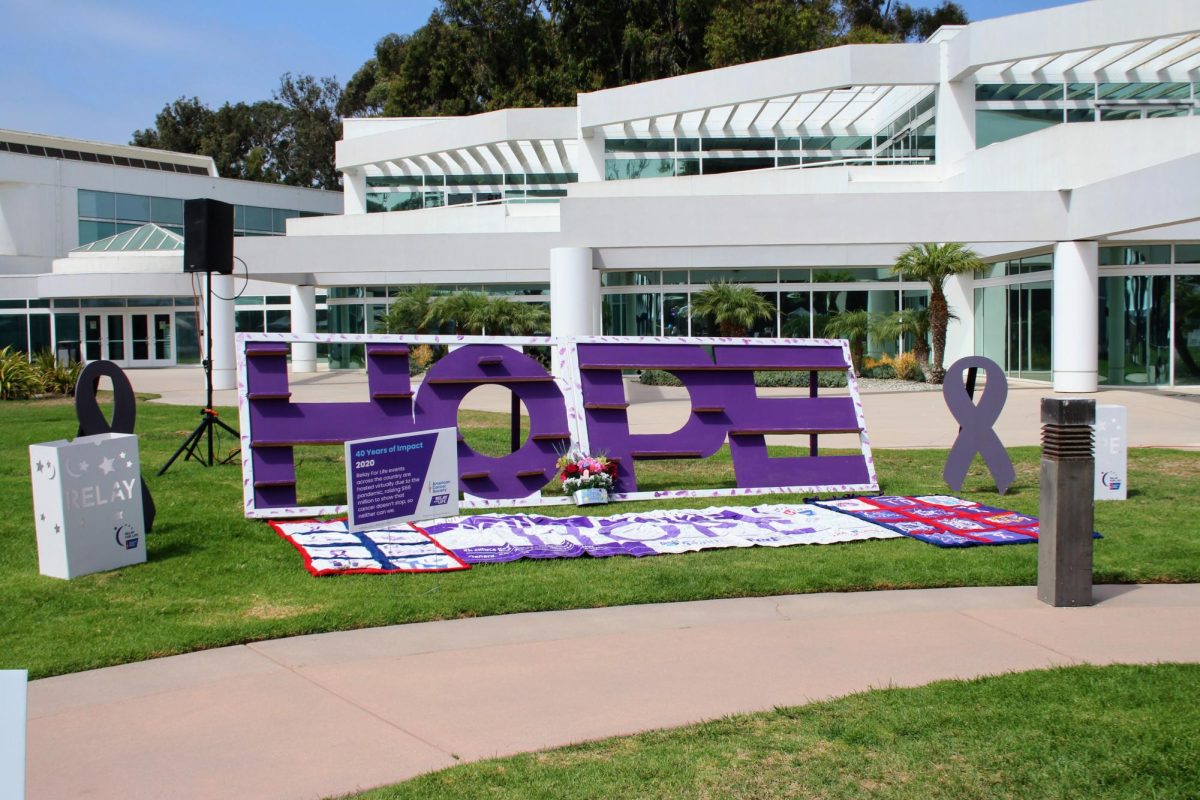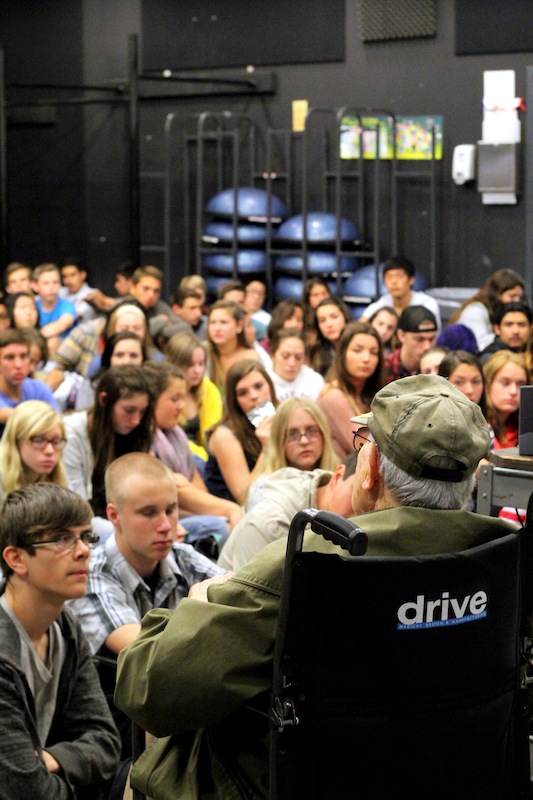
Holocaust survivor and “Nazi hunter” Bernd Simon, now 93 years old, made his annual trip to Foothill this past Wednesday to share his story and message with the sophomore class, who are currently learning about the Holocaust and World War II.
Students gathered in the black box during FIRE and lunch to hear Simon speak about his time in a concentration camp and escape from Nazi Germany in World War II.
“Nothing is made up, no Hollywood,” Simon said.
Honors World History teacher Cherie Eulau has asked Simon to speak to sophomores during the Holocaust unit of her class every year for the past 15 years. She finds his presence to be an important part of the curriculum.
“I think for each set of students it’s new, it puts a personal touch to it and his range of experience makes him unique,” Eulau said.
This year, the first portion of the visit was dedicated to a video about Simon’s life, starting with his life in Essen, Germany. However, Simon’s life changed drastically when he was sent to Dachau, a famous concentration camp, from where he escaped legally after his mother obtained a one-year VISA. This VISA granted him refuge in Cuba, where he stayed until he visited the Nazi embassy in Havana and was able to move to the United States.
He built his life in Missouri until he decided to volunteer for the U.S. Army to seek justice for his mistreatment. He was later asked by the Counter Intelligence Core to become a “Nazi hunter” and played a part in bringing war criminals to the Nuremberg Trials.
An emotional part of the video included a clip of Simon singing “It Had To Be You” to his wife of 65 years, Judie. She too is a Holocaust survivor, and spent time in the death camp Auschwitz.
After the video, Eulau gave students the opportunity to ask Simon questions about his experiences. A major part of the history curriculum is dedicated to learning about the Holocaust and students eventually try to decide who was to blame for the atrocities in the “Who’s Responsible?” project.
When asked who he believed was most to blame, Simon explained why he believed it was the German people of the time who should be held most responsible.
“Don’t forget, but do forgive,” he said.
Sophomore Ariana Vivian felt his stories were made a large impact.
“It’s crazy because it’s like a nightmarish story when you learn about it, but listening to him made it so real,” she said.
Simon left the sophomores with a message of encouragement, reminding them to “have hope” and thanking them for their “knowledge, friendship, and loyalty.”
When asked how the experience affected his faith, he replied, “You have to be strong, you have to have faith, that’s what keeps you alive. Be hopeful, be tolerant.”

